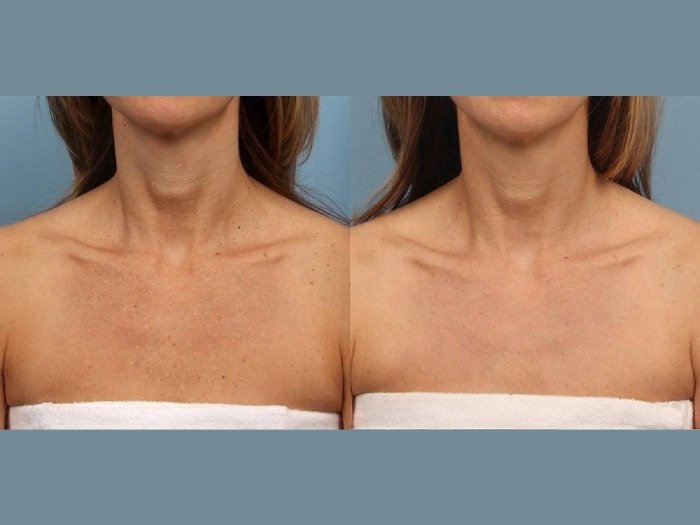Composite veneers have become a popular solution for people seeking quick, non-invasive smile makeovers. From closing gaps to correcting discoloration, they offer a customizable and affordable alternative to porcelain. However, one concern that often arises is whether composite veneers cause or worsen tooth sensitivity. If you’re considering Composite Veneers In Dubai, it’s important to understand how this treatment may affect your dental comfort—both short and long term. Here’s everything you need to know about composite veneers and tooth sensitivity.
Why Sensitivity Happens After Veneer Application:
Tooth sensitivity following veneer application is relatively common, especially in the first few days. This typically results from the bonding process or minor enamel preparation.
-
Slight etching or reshaping of enamel can expose nerve endings
-
The bonding agent used during application may cause temporary irritation
-
Cold or hot temperatures may trigger discomfort post-treatment
-
Sensitivity often resolves within a few days to a week
-
Severe or prolonged sensitivity could indicate underlying issues
How Composite Veneers Are Applied:
Understanding the procedure helps explain why some level of sensitivity may occur. Composite veneers are applied in a direct, minimally invasive process right at the dental chair.
-
The dentist lightly etches the tooth surface for better bonding
-
Composite resin is applied and shaped directly onto the tooth
-
Each layer is hardened using a special curing light
-
Polishing creates a natural shine and smooth finish
-
Minimal enamel removal helps reduce the risk of long-term sensitivity
Common Triggers for Sensitivity After Veneers:
Knowing what can trigger sensitivity helps you avoid discomfort after your composite veneer procedure.
-
Hot and cold food or drinks may stimulate sensitive nerves
-
Brushing too hard can aggravate exposed areas of enamel
-
Acidic or sugary foods may weaken bonding areas temporarily
-
Clenching or grinding can increase sensitivity in the days following treatment
-
Dental cleanings or whitening soon after veneer placement may also cause flare-ups
When Sensitivity Is Normal—and When It’s Not:
Mild sensitivity is usually a normal part of the healing process, but it’s important to know when to seek professional help if discomfort persists.
-
Temporary discomfort within 1–7 days is typical
-
Pain lasting more than two weeks could signal a bonding issue
-
Sharp or shooting pain may indicate pulp irritation
-
Discomfort when biting could suggest improper fit or adjustment needs
-
Recurring sensitivity in the same area should be examined by your dentist
How Dentists Minimize Sensitivity Risk:
Skilled cosmetic dentists take several precautions to ensure minimal discomfort during and after the application of composite veneers.
-
Use of desensitizing agents before or after application
-
Minimal or no drilling to preserve natural tooth structure
-
Accurate bonding techniques to seal enamel effectively
-
Fine-tuning veneer thickness to avoid bite interference
-
Post-treatment instructions to promote healing and comfort
Managing Tooth Sensitivity at Home:
If you experience minor sensitivity after receiving Composite Veneers In Dubai, there are several ways to ease the discomfort and protect your teeth.
-
Use toothpaste formulated for sensitive teeth
-
Avoid extremely hot or cold foods for a few days
-
Maintain gentle brushing with a soft-bristled toothbrush
-
Stay hydrated to promote saliva flow and natural enamel protection
-
Follow your dentist’s aftercare instructions carefully
The Role of Pre-existing Dental Conditions:
Patients with existing dental issues may be more prone to sensitivity following veneer treatment. Your dentist will assess these risks during the consultation.
-
Teeth with worn enamel may be more reactive to bonding agents
-
Gum recession can expose root surfaces, causing increased sensitivity
-
Large fillings or past trauma may result in heightened nerve response
-
Bruxism (grinding) can aggravate teeth after veneer placement
-
Pre-treatment evaluation helps determine if you’re a good candidate
What Patients Say About Composite Veneers In Dubai:
Many patients who choose Composite Veneers In Dubai report minimal discomfort and are satisfied with their aesthetic results. Clinics across the UAE are known for using advanced bonding techniques and modern technology to enhance patient comfort.
-
High-quality materials reduce irritation and enhance longevity
-
Clinics use laser etching and digital precision for better fit and sealing
-
Dentists offer comprehensive post-care support and sensitivity management
-
Professional hygiene guidance helps patients avoid long-term issues
-
Overall patient feedback in Dubai suggests a smooth, comfortable experience
Final Thoughts:
Tooth sensitivity following composite veneers is typically mild and short-lived, especially when applied by an experienced cosmetic dentist. If you’re exploring Composite Veneers In Dubai, rest assured that most discomfort can be easily managed and usually subsides within days. The key is to choose a reputable clinic, follow proper aftercare, and communicate openly with your dentist about any concerns. With the right preparation and professional guidance, composite veneers can offer a beautiful smile with minimal sensitivity and maximum satisfaction.





